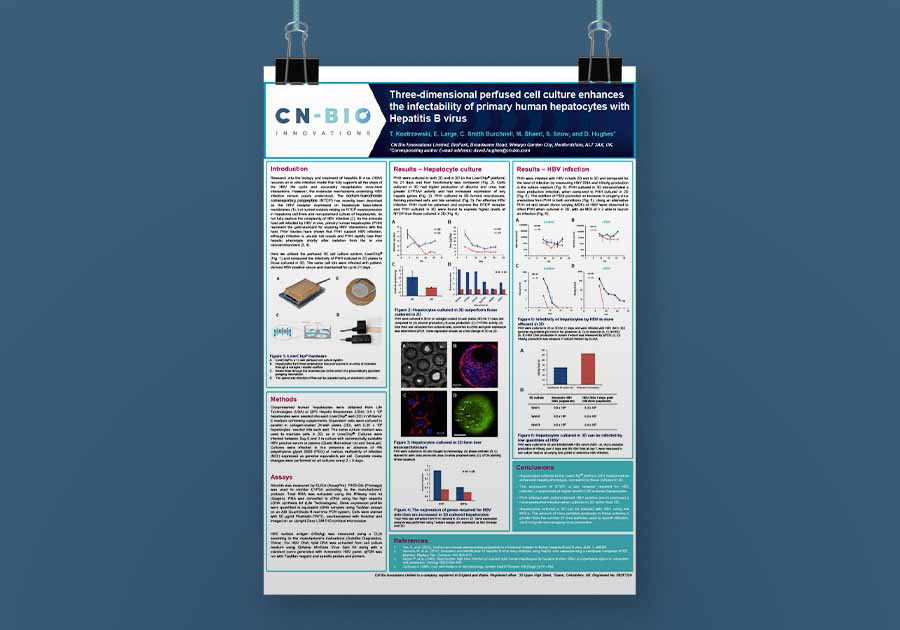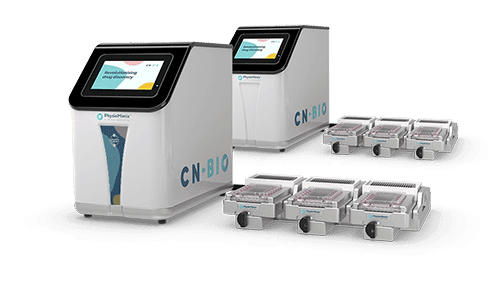Resource > Posters >
Three-dimensional perfused cell culture enhances the infectability of primary human hepatocytes with Hepatitis B virus
Filed under: Disease modeling and HBV

Kostrzewski et al
Research into the biology and treatment of hepatitis B virus (HBV) requires an in vitro infection model that fully supports all the steps of the HBV life cycle and accurately recapitulates virus-host interactions. However, the molecular mechanisms underlying HBV infection remain poorly understood.
The sodium-taurocholate co-transporting polypeptide (NTCP) has recently been described as the HBV receptor expressed on hepatocyte baso-lateral membranes, but current models relying on NTCP overexpression in hepatoma cell lines and non-polarized culture of hepatocytes, do not fully capture the complexity of HBV infection. As the principal host cell infected by HBV in vivo, primary human hepatocytes represent the gold standard for studying HBV interactions with the host. Prior studies have shown that PHH support HBV infection, although infection is usually not robust and PHH rapidly lose their hepatic phenotype shortly after isolation from the in vivo microenvironment.
Here, we utilized 3 perfused 3D cell culture system and compared the infectivity of PHH cultured in 2D plates to those cultured in 3D.

